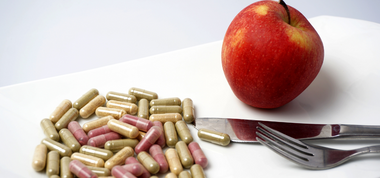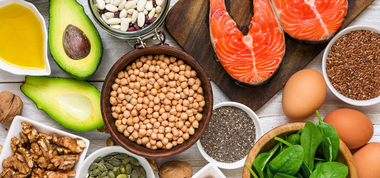What you need to know about inflammation

Sometimes the desire to simplify things can lead to confusion and misinformation. It would make my job as a cardiologist much easier if everyone got heart disease for the same reason and had the same symptoms.
As someone who cares deeply about science and evidence-based medicine, I consider it my job to empower my patients with credible knowledge so that they can be more active participants in their own care. So today I’m here to clear up misconceptions about inflammation.
There’s a temptation to blame heart disease on inflammation alone, ignoring other risk factors such as cholesterol. That line of thinking can lead someone to refuse to take statins, even if their cholesterol remains high after trying to control it through diet and lifestyle changes. As you know, I’m not a pill pusher, but I do believe statins can be lifesaving in certain situations. Here’s why:
Inflammation is simply one component of heart disease, albeit an important one! About 20 years ago, researchers found that people with high levels of inflammation, as measured by high sensitivity c-reactive protein (hs-CRP), were more likely to suffer a heart attack or stroke. And in many ways this makes complete sense. We know that the accumulation of cholesterol in artery walls triggers an inflammatory response.
If you look at plaque deposits under a microscope, you will find not only cholesterol, but also inflammatory cells. The more plaque is present, the more actively that plaque is accumulating, growing or changing, the more inflammatory cells arrive at the scene. That means more hs-CRP gets released into the bloodstream. Inflammatory cells make plaque deposits less stable, making them more vulnerable to bursting or sloughing. And what happens when a vulnerable plaque bursts or sloughs? The body responds by making a blood clot at that spot. The blood clot is what causes all the havoc. If the blood clot is big enough, it can completely block the flow of blood beyond it, causing a heart attack. If a portion of the clot breaks off, it can cause a stroke.
So you can see why inflammation is an important component of heart disease and why hs-CRP elevations can identify patients at increased risk of sudden cardiovascular events.
But addressing inflammation alone is an incomplete approach. If plaque keeps building up, you can’t fully turn off the inflammatory response, no matter how many anti-inflammatory medications or supplements you take. Inflammation is the symptom — not the cause — of plaque formation.
This is why it pains me to hear patients discount their high cholesterol readings, announcing that inflammation is key and they don’t believe in the “cholesterol hypothesis”. It ALL matters. Blood pressure matters. Blood sugar matters. Weight matters. Inflammation matters. And cholesterol matters. Cholesterol is one of the best studied risk factors for heart disease, with a near linear correlation between cholesterol levels and risk of heart events. No, it’s not perfect. Not everyone with high cholesterol will develop heart disease – and not everyone with low cholesterol is spared. But, on a population level, people with higher LDL values experience more heart issues.
The good news is that even though it’s important to address inflammation and cholesterol to keep your heart healthy, both can be accomplished by doing the same things. Since inflammation is the response to plaque development, when you do everything you can to reduce plaque formation – including lowering cholesterol – you also tamp down plaque inflammation, lowering your risk for heart attack and stroke.
By now you know the first step to do that: Eat a heart-healthy diet, including lots of plants and whole foods (make it easy on yourself by incorporating our products into your daily routine). Other lifestyle changes, namely not smoking and exercising regularly, also impact both inflammation and cholesterol levels.
You should also know that researchers suspect that statins can reduce inflammation as well as LDL cholesterol, so the drugs likely have more than one effect. It’s probably why they are so beneficial, even lifesaving, in people with known heart disease (who have lots of plaque by definition) and why I routinely prescribe statins under these circumstances.
While the problems are complex, the solution can be simple: Eat well, don’t smoke, exercise, and consider medication when necessary. And don’t be fooled into thinking you can boil it all down to only one factor like inflammation. Just like there’s more to food than any one nutrient, there’s far more to us than any one health marker.
Read the corresponding blog posts in the "What you need to know" series:

Tested & Proven Results.
- Cardiologist formulated
- Supported by over 500 publications
- Clinically-proven, in a double-blind randomized trial with Mayo Clinic and The University of Manitoba
80% of participants lowered their cholesterol in just 30 days. With just two servings per day, Step One Foods offers a proven-effective way to naturally lower LDL (bad) cholesterol.
Get heart health tips and articles like this, delivered right to your email.
New articles every week.
You may also like...

Supplements for cholesterol lowering? Not so fast.

You don’t need to avoid foods with cholesterol…except for these



